Nutritionist-approved vending machine snacks
Once the afternoon slump hits, you might find yourself searching for a pick-me-up snack. If your healthy desk drawer snacks are running low, the office vending machine is another option. You can avoid energy crashes and satisfy your cravings if you avoid these foods nutritionists don’t buy from vending machines—and opt for their favorites instead.
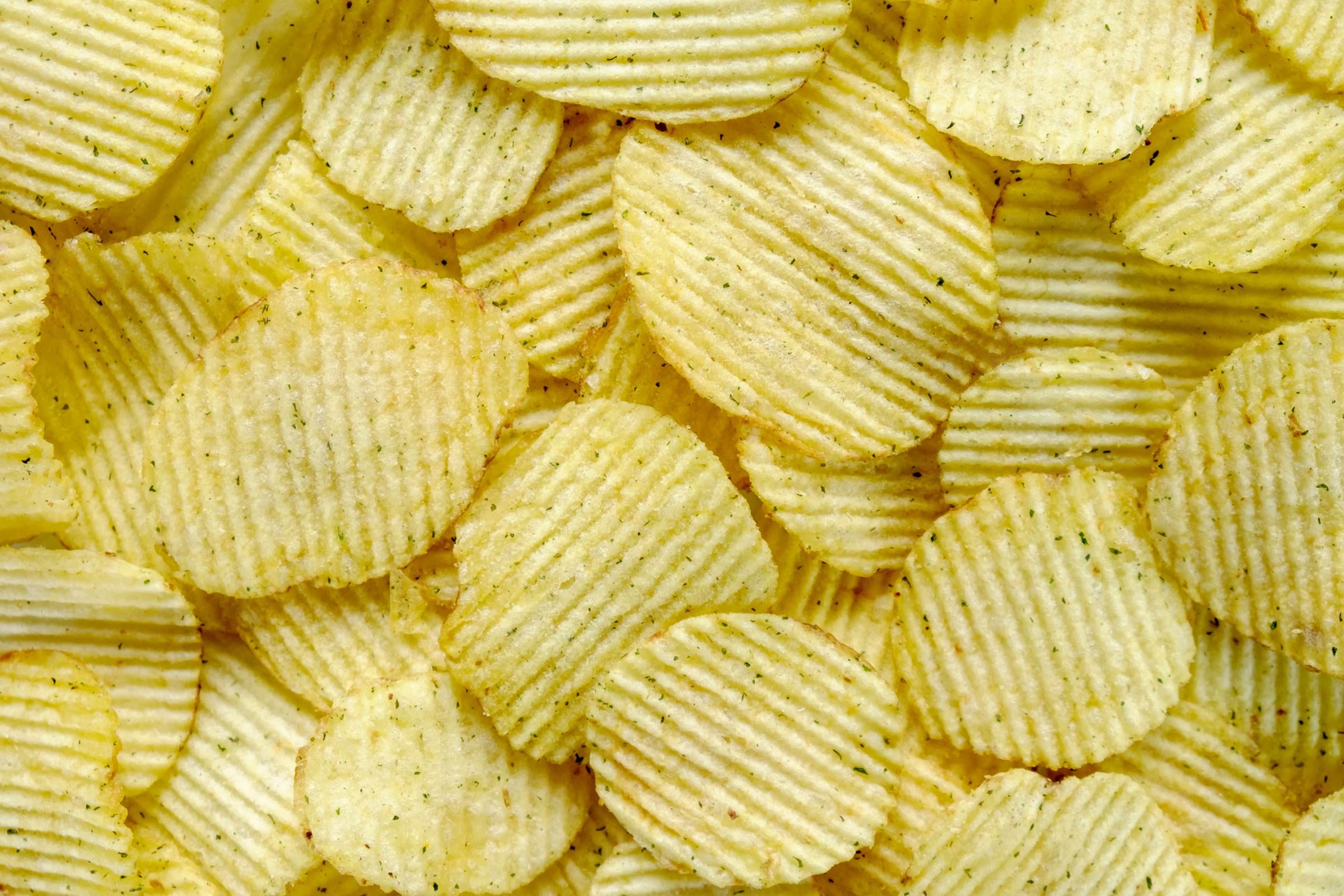
Food to avoid: Potato chips
A bag of salty, crunchy chips may seem benign—just potatoes, right? But John La Puma, MD, founder of Chef Clinic, says these high-sodium foods may actually leave you feeling hungrier than you were before. Chips are made up of starches—usually either potatoes or corn—that are deep-fried and heavily salted. When you digest the starches, your body converts them into sugar; this leads to spikes in your blood sugar (glucose) and insulin levels, followed by a steep crash. This leaves your stomach growling even louder than before. Did you know there’s a reason why potato chips are so addictive?
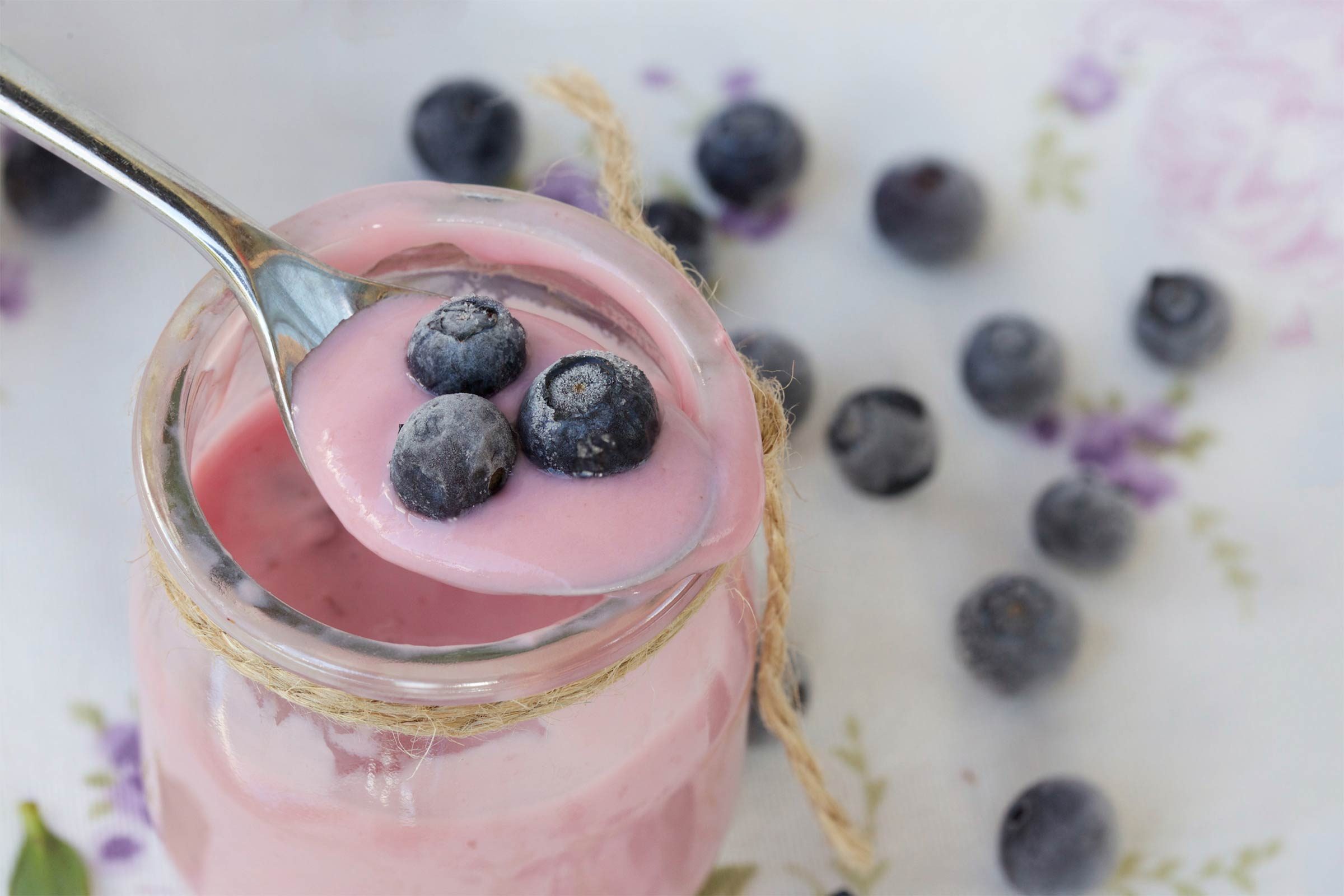
Food to avoid: Sweetened yogurt
We tend to consider yogurt a healthy snack, thanks to its calcium and probiotics, but Dr. La Puma says that this creamy treat often delivers even more sugar than a serving of ice cream. A single cup of sweetened yogurt has about two teaspoons of added sugar. “Unless it’s plain yogurt or the label says ‘unsweetened yogurt,’ I would avoid it,” Dr. La Puma says. Don’t miss the other foods with way more sugar than you realized.
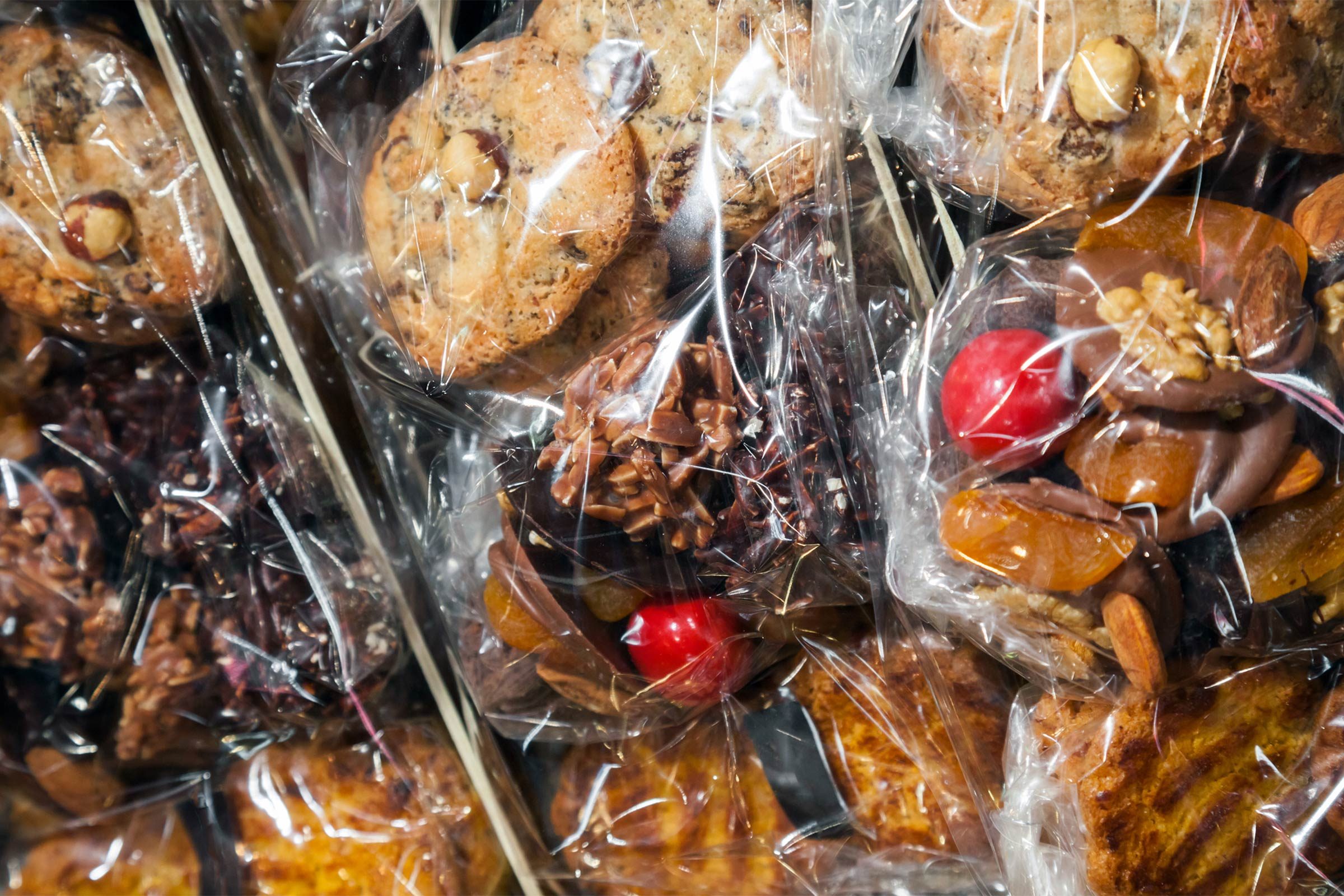
Food to avoid: Baked goods
Be wary of pastries and baked goods—like Twinkies and cinnamon rolls—sold in vending machines as they often contain high levels of saturated and trans fats, says Jen Bruning, RDN, spokesperson for the Academy of Nutrition and Dietetics. Both have been shown to contribute considerably to heart disease. Check out the heart disease risk factors you might not know to watch for.
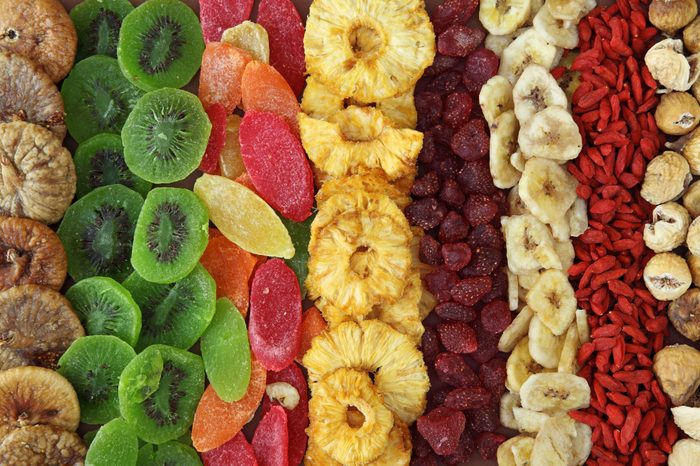
Food to avoid: Dried fruit
The constant drumbeat about eating more fruit surely applies to the raisins and craisins found in vending machine packages, right? Not so fast. “Raisins have no added sugar so they can be a good vending machine choice to get some fiber and a fruit serving,” says Dawn Jackson Blatner, RDN, author of The Superfood Swap. However, some other dried fruit has added sugar which just means a quick burst of energy with a major energy crash, Blanter says. Check out the 14 foods that are worse for your teeth than candy.

Food to avoid: Candy bars
Yes, this is a broad category, but you can probably guess the ones we’re talking about: Sticky caramel, gooey nougat, melt-in-your-mouth chocolate, and other sweets. Most candy bars contain three or four different kinds of sugar and sugar syrups—like corn syrup, rice syrup, glucose, maltose, and fructose. As is the case with potato chips, these sugars jack up blood sugar, spiking your insulin levels and eventually causing blood sugar levels to plunge. “The fast energy we get from a sugary candy bar can leave us feeling the ‘crash’ when our blood sugar drops,” Bruning says. “We can feel tired and sluggish; then hungry again a short while later.” These healthy snacks can stop sugar cravings in their tracks.
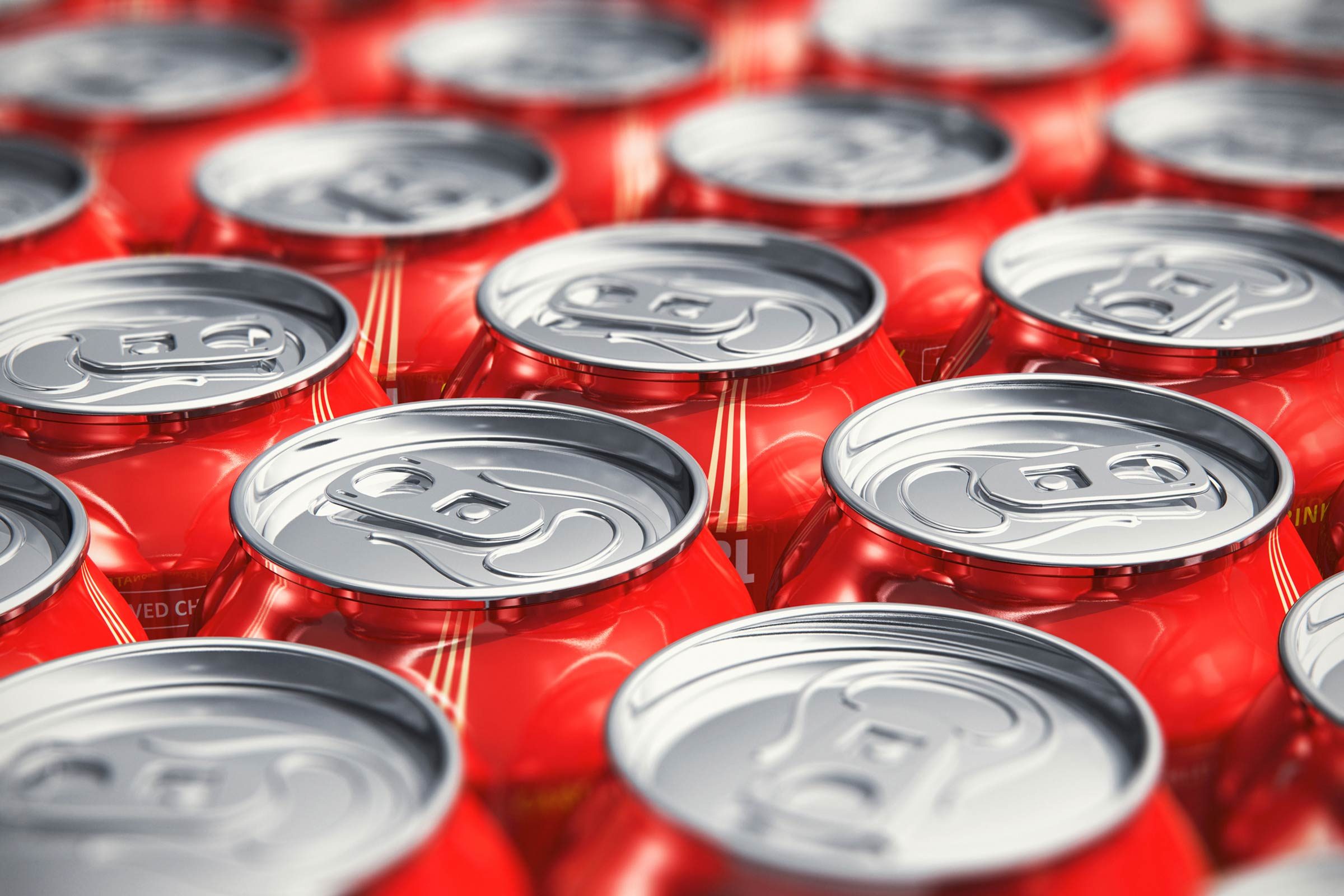
Food to avoid: Soda
A 20-ounce bottle of cola contains approximately 65 grams of sugar—that’s 22 percent of your daily carbohydrates! The heaping amount of sugar found in soft drinks is designed to “suck you in and weigh you down,” says Dr. La Puma. Soda contains little to no nutritional value and can cause tissue damage, weight gain, and contribute to the risk of diabetes. And if you think diet sodas are a healthier option, think again. A study published in 2014 in the American Journal of Public Health found that overweight and obese adults drink more diet beverages than healthy-weight adults. Despite not having any sugar, diet drinks can wreak havoc on your body, Dr. La Puma says. They’re filled with artificial sweeteners that may alter your microbiome (the friendly bacteria in your gut) and impact the way your lower intestines digest what you eat and drink. This change causes a blow to your immune system, making you more susceptible to illness. Here are other reasons you should avoid soda at all costs.
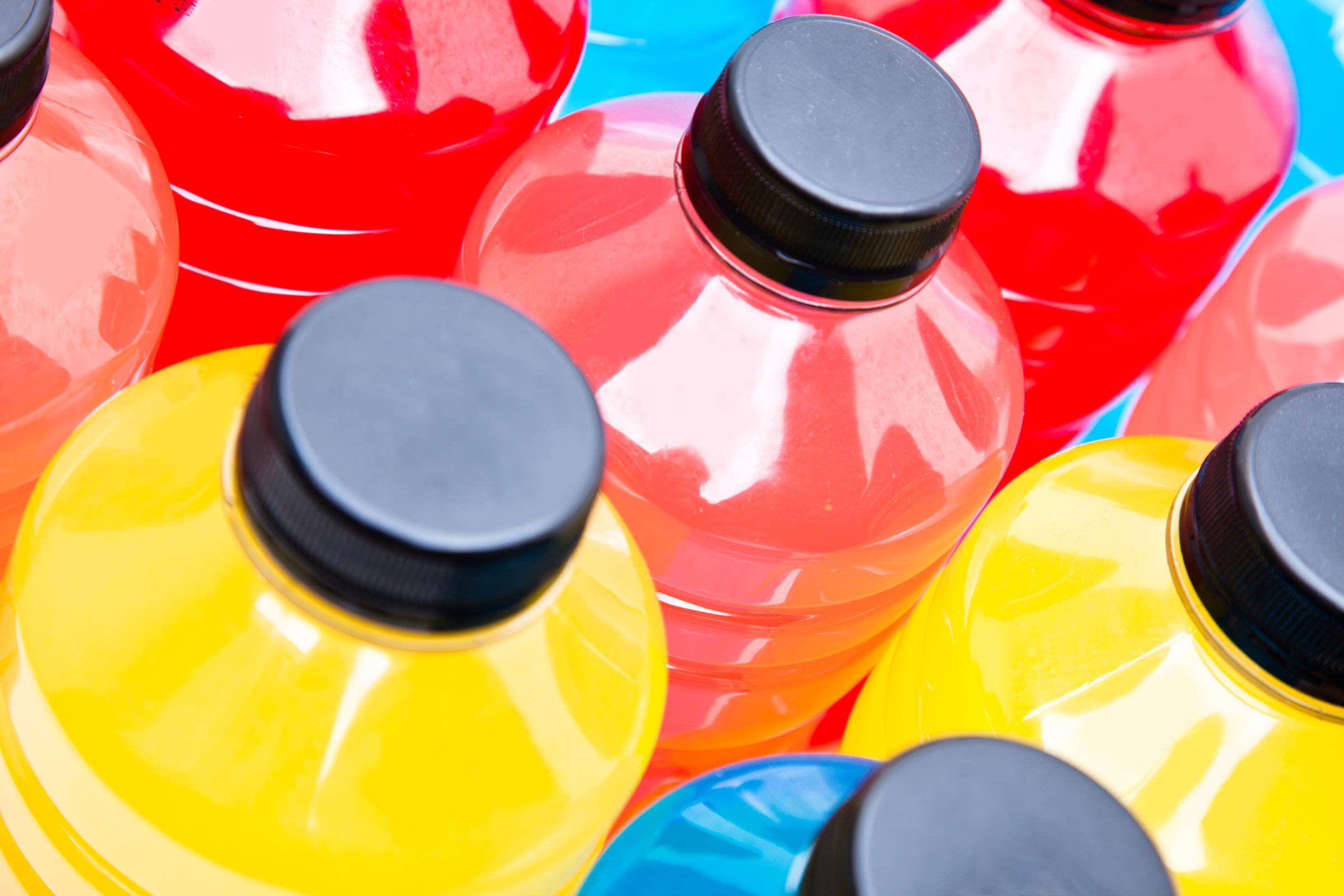
Food to avoid: Sports drinks
Drinks like Gatorade and Powerade have a health halo because of their association with sports and physical fitness, but they’re basically just soft drinks in disguise. “Your body doesn’t say ‘These are calories, I’m getting full with them,'” Dr. La Puma says. “Your body says, ‘This is liquid and I’m absorbing calories with it, but I don’t know the difference between just absorbing them and storing them, so I’ll just store them.'” Sports drinks also contain chemicals and colorings and deliver a large dose of hidden sugars that will only make you feel hungry, rather than slaking your thirst. Here are 13 “healthy” food habits you should ditch right now.
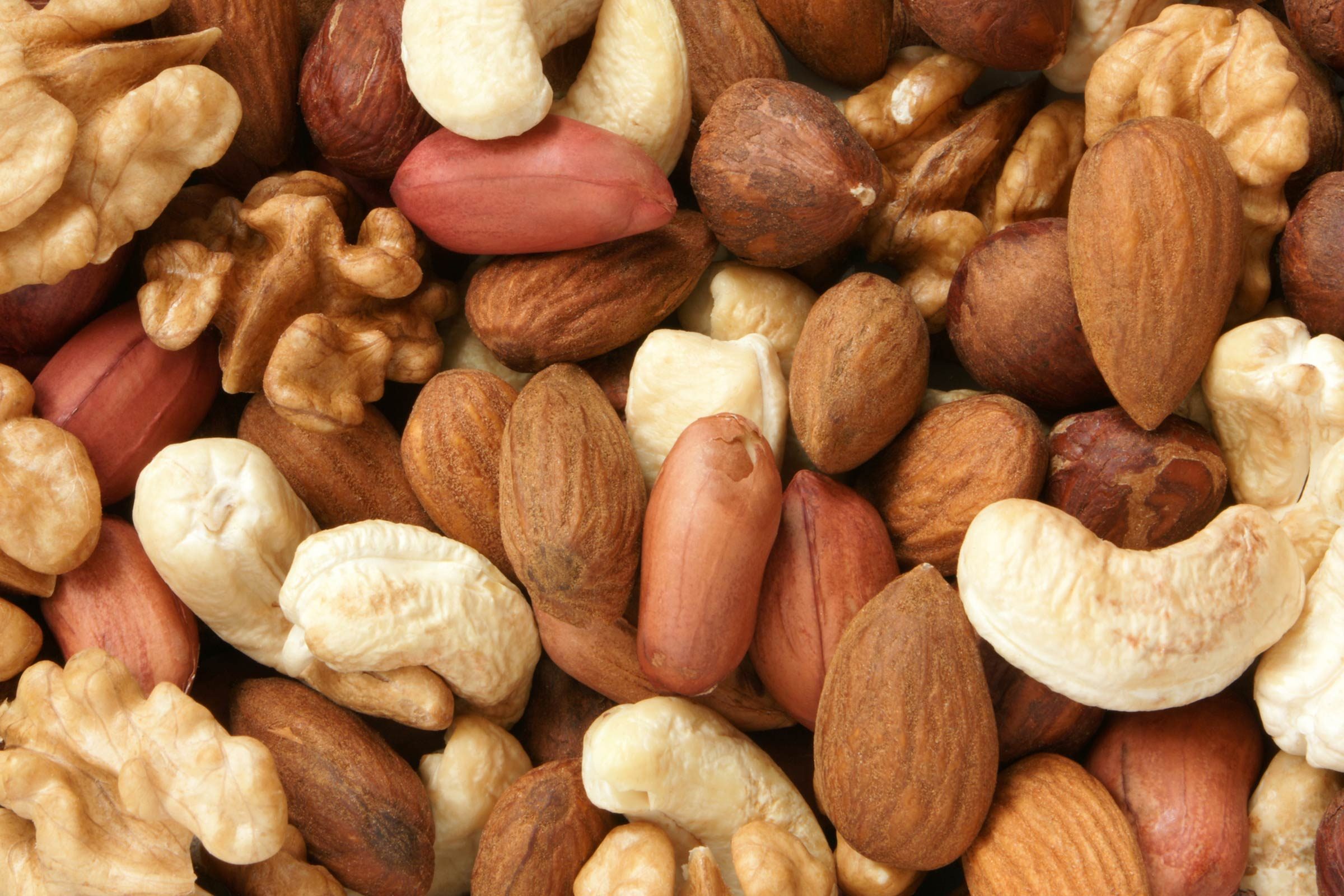
Food to choose: Nuts
Nutritionists love nuts. Almonds, walnuts, and pecans are all smart choices because they’re packed with protein, fiber, and healthy fats. “This trio means real satisfaction between meals which is exactly what a snack is supposed to do, bridge one meal to the next,” says Blatner. “Nuts are the all-stars of vending machines.” Unlike those in pastries and candy bars, the healthy fats found in nuts take a while to digest, which, combined with protein, provide longer lasting energy between meals.
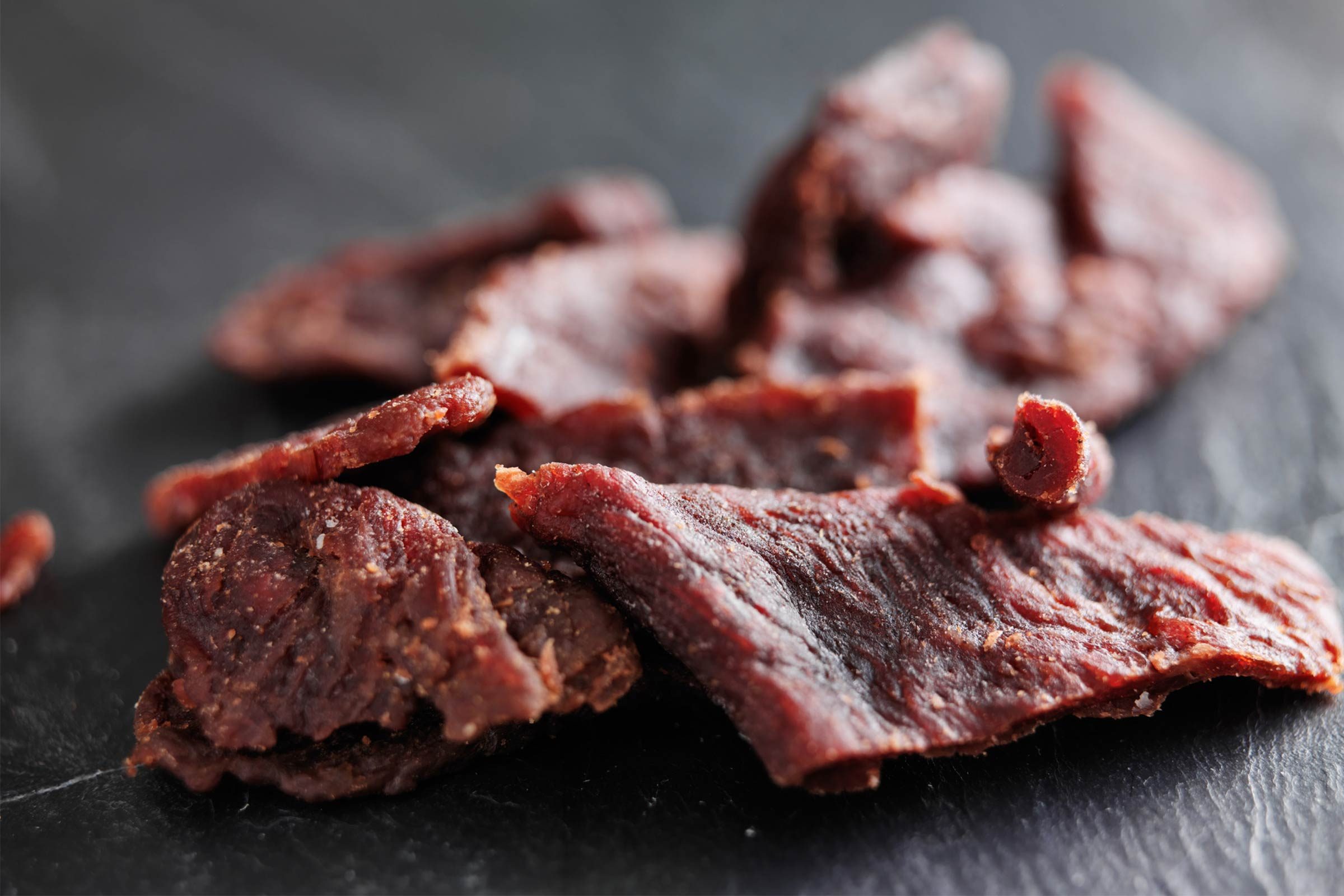
Food to choose: Jerky
Despite being rather high in sodium, jerky is one of the better options to choose from a vending machine. Beef jerky is packed with protein, with about 9 grams in just one ounce of meat. Beef jerky is also loaded with zinc. And research, including a study published in 2018 in the journal Nutrients, shows that zinc helps your body heal wounds. As for the sodium (there are around 440 milligrams in each piece), Dr. La Puma says, “those who are watching their sodium probably need to have only one piece, but those who are not can have more than one.” Note that jerky is a processed meat, so it’s not ideal for daily snacking. Jerky is just one of many nutritious foods that gets a bad rap.
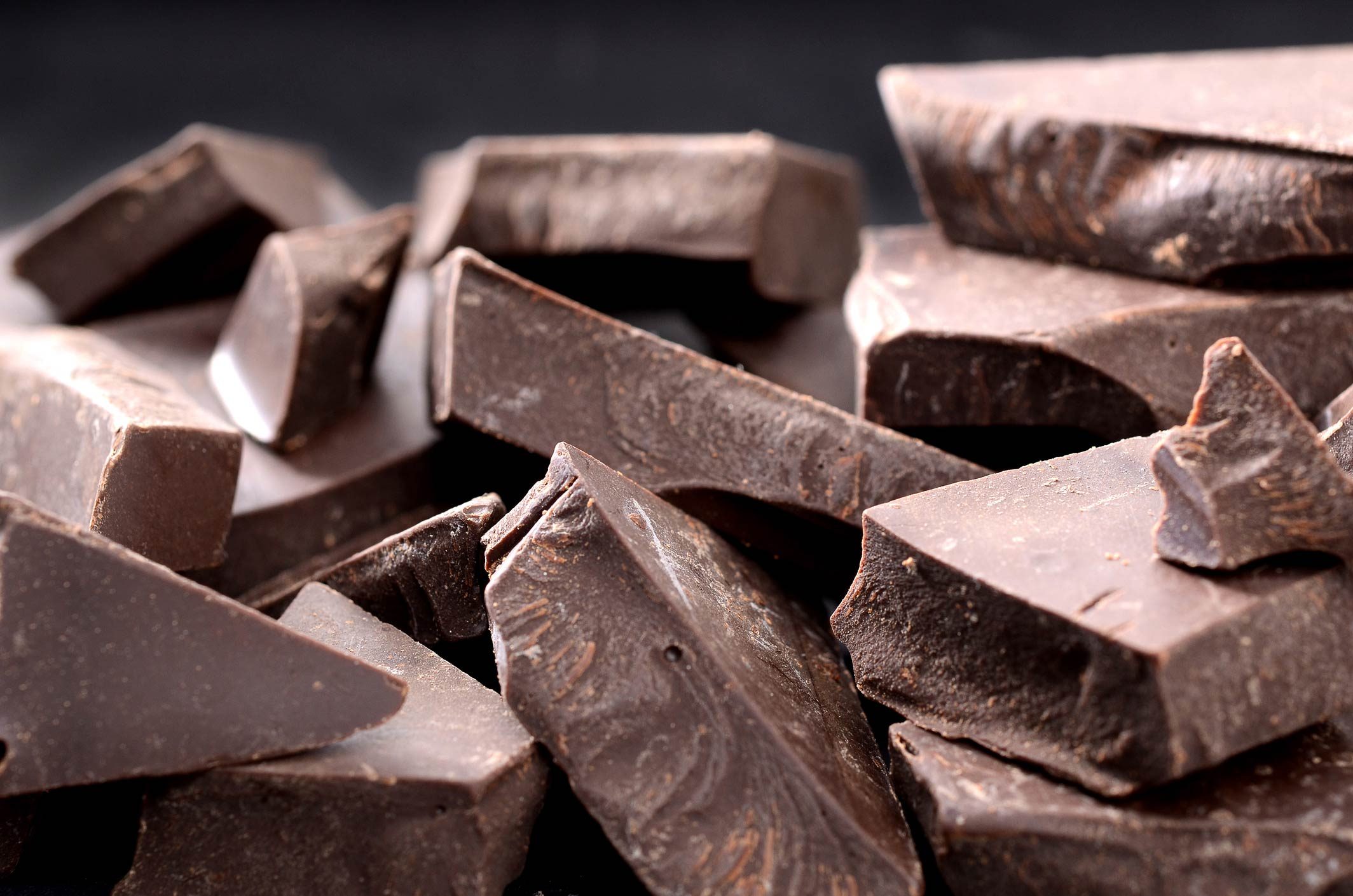
Food to choose: Dark chocolate
Most nutritionists allow themselves a sensible amount of dark chocolate. The higher percentage of cocoa certainly makes it more bitter than milk chocolate, but having less sugar than milk chocolate leaves room for some significant boosts to your health. Cocoa is rich in plant chemicals called flavanols that may help prevent heart disease and type 2 diabetes. To maximize these benefits, choose 70 percent dark chocolate or higher to obtain the most flavanols and stick to a couple of squares as a serving (not the entire bar).
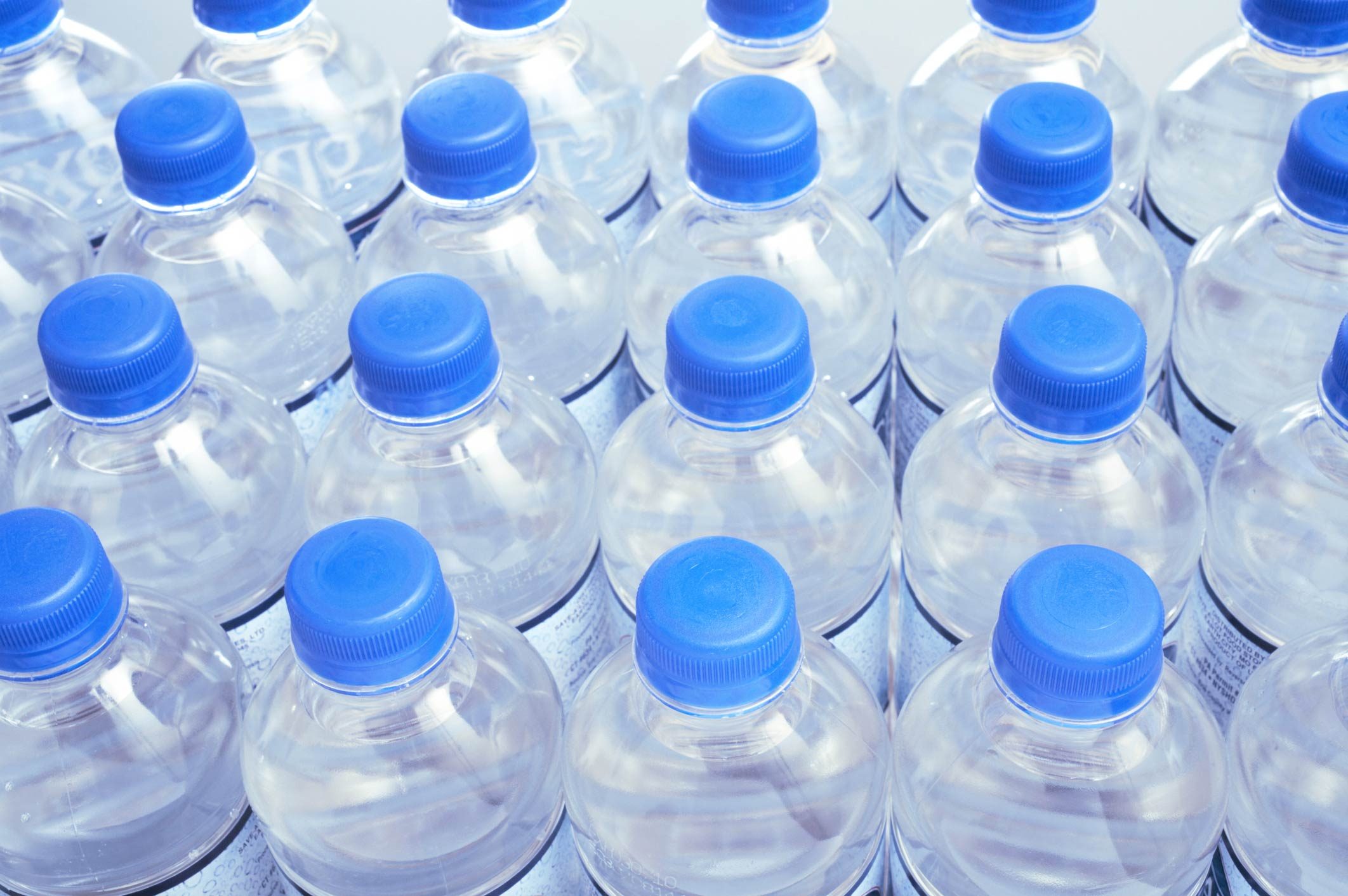
Food to choose: Water
Sugar-heavy beverages like sodas, juices, and energy drinks may be enticing choices, but Dr. La Puma says nothing will quench your thirst like plain old water. Not only is it free of calories, fats, and sugars, but water also helps lubricate and cushion your joints, protect your spinal cord and other sensitive tissues, and eliminate waste. Plus, as Dr. La Puma explains, we often mistake our hunger for thirst and end up wasting loads of empty calories on sugary beverages. By choosing water instead of a soda or sports drink, we leave some room in our diet for tastier snacks that actually benefit our health. Here are the signs that you definitely need to be drinking more water.
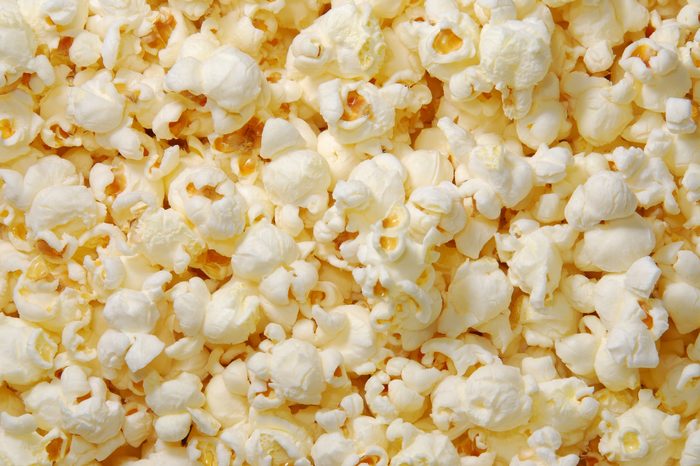
Food to choose: Popcorn
Whether it’s already popped or available in a microwavable bag, reduced-fat popcorn is among the healthiest vending machine snack options. A study published in 2019 in the journal Antioxidants suggests that popcorn has the potential to be a significant source of good-for-you phytochemicals. “It’s naturally a whole grain and its fiber can help manage appetite between meals,” says Blatner. “This is a top choice.” Here are 9 reasons you need popcorn in your diet.

